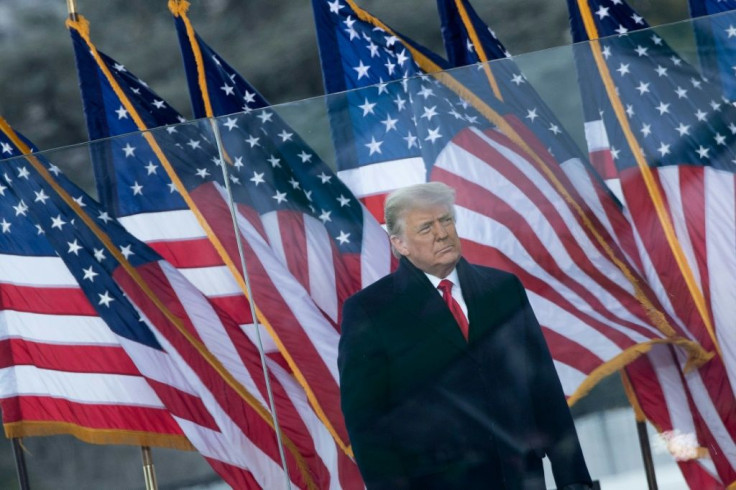Trump Impeachment Trial Awaits, Many Americans Say Government Is Broken
With former President Donald Trump's second impeachment trial set to begin Tuesday, "less than half of the public feels that the American system of government is basically sound," according to a poll released Monday by the Monmouth University Polling Institute.
The polls showed that 55% say the government is unsound and 22% believe significant changes are needed to fix it. Only 44% of those polled said that the government was sound, with the vast majority of those believing some improvements are needed.
Monmouth has asked the question annually since 2017 and this is the first time a majority held a dim view of the system of government. The question itself dates to late 1980, a time when 62% of those surveyed believed in the soundness of the government compared to 37% that did not.
Unlike much of public opinion in the current landscape, the poll showed that the opinions are not divided along party lines, as 58% of Republicans, 55% of Democrats and 54% of independents responded with their belief the system is not sound.
Those figures were much more sharply divided in 2020, with 65% of Democrats saying the system was broken, compared to only 41% of independents and 28% of Republicans.
"This is the environment in which this impeachment trial takes place," said Monmouth University Polling Institute director Patrick Murray. "Fear of the most fanatical part of the partisan base is a bigger driver of what many leaders are willing to do and say in public than are concerns about eroding trust in the democratic process itself."
The results of this poll come after months of Trump and his supporters casting doubt about election integrity prior to Nov. 3 and still-unsubstantiated claims of massive voter fraud.
Douglas Kmiec, former head of the Office of Legal Counsel during the Reagan and George H.W. Bush administrations, wrote in a Monday op-ed for The Hill that a secret ballot in the impeachment trial would likely yield a much different result than the anticipated roll call vote -- 36 Senate Republicans have already indicated they will not vote to convict Trump, according to the New York Times.
Kmiec points out, however, there is no real disagreement between the House impeachment managers and Trump's defense team regarding the facts of the deadly Jan. 6 attack on the Capitol.
"Yet despite Trump having neither law nor fact nor common sense on his side, it is largely predicted that conviction in the Senate will lack the requisite two-thirds vote," Kmiec wrote.
"When Trump faced the earlier impeachment, I urged that the Senate have the benefit of a secret ballot like almost all jurors have in non-impeachment matters and that all enjoy in primary and general elections.
"The wisdom of a secret ballot is even greater because of the Jan. 6 riot, the continuing threat of violence against members of Congress, and in state capitals around the country."
Veteran political strategist B.J. Rudell wrote Monday for The Hill that Republicans go into the trial facing what is termed as a "prisoner's dilemma," saying the Republican caucus in the Senate has incentives to cooperate on impeachment in order to loosen Trump's vice-like grip on the party.
But those senators also face a potential reckoning from Trump's supporters — 64% of whom say they would leave the GOP for a new party led by Trump — should the former president be acquitted and thus not banned from holding future public office.

© Copyright IBTimes 2024. All rights reserved.





















